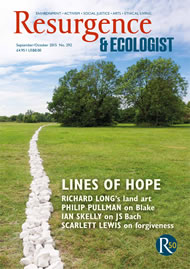Samuel Johnson, the author of A Dictionary of the English Language, published in 1755, started collecting vocabulary for a reason. He wanted to bring order and clarity. “Wherever I turned my view, there was perplexity to be disentangled, and confusion to be regulated.” Where he ended up was somewhere different. He became an admirer of the changing nature of language, and saw that his role was to record the words of his time rather than to fix them for all time.
Beyond the dictionary compiler’s ambition of compiling every word, like a collector of butterflies, there have been many anthologies of words and meanings since that try to capture and convey subtle moments of change in language. For example, in the late 20th century Raymond Williams wrote Keywords: A Vocabulary of Culture and Society, which was an attempt to understand culture through the prism of just over one hundred words.
Degrowth: A Vocabulary for a New Era sits within this tradition. It is a glorious, almost riotous sweep across a diverse panoply of words that emerge in contemporary social and environmental action and protest around the world. It describes the world in order to change it, or at least to mark the change that the authors hope will come.
Each word has an explanatory section and an author. From Anti-utilitarianism and Autonomy through to Urban Gardening and Ubuntu, the book meanders through an extraordinary range and mix of concepts. Some are at the heart of ‘degrowth’ – the invitation to imagine a future not based on the destructive treadmill of economic growth. These include Dépense, Disaster Pedagogy, Entropy, Happiness and Peak Oil, illustrating the eclectic mix of what is open to the reader.
Others are the words of ideas in practice, of action and innovation, including Digital Commons, Co-operatives, Eco-communities and Simplicity. Or words of collaboration, such as Buen Vivir and Indignados.
The authors represent a roll-call of inspiring and authoritative radical voices: Juliet Schor, Serge Latouche, Tim Jackson, Joan Martinez-Alier, David Bollier. They set the context for and explain all the threads of the word they are writing about, linking it to others in the book where they can.
One of the great strengths of this book is the cross-cultural nature of its reach. The editors, from the University of Barcelona, are all members of the network Research & Degrowth. They reflect the growing recognition worldwide of the twin ecological and economic challenges faced by human society, as well as the closer links of protest and alternative proposals across cultures, through networks such as RIPESS, the P2P Foundation and the interlinked networks of social and solidarity economy, cooperative and commons initiatives. As a result, there are words and concepts in the book that are new as well as old, that are familiar as well as challenging.
No one will speak of course using only the words chosen by the authors. There are too many syllables, too little consistency of approach and too many abstract, conceptual frameworks quite to mesh. But the guidance that the editors give is not to do that, nor even to read the book from start to finish. They are right. Pick a page, jump about, throw the book in the air and read what you catch. Just don’t do that in the bookshop.
Samuel Johnson may have moderated his personal ambition to order and change the language around him, but the best dictionaries, including his, do indeed have some of that effect over time. In describing the landscape, they become an embedded part of the landscape. Degrowth: A Vocabulary for a New Era is not an easy read, but then the journey it charts is not an easy journey. Equipped with words, though, we can feel like anything is possible.







